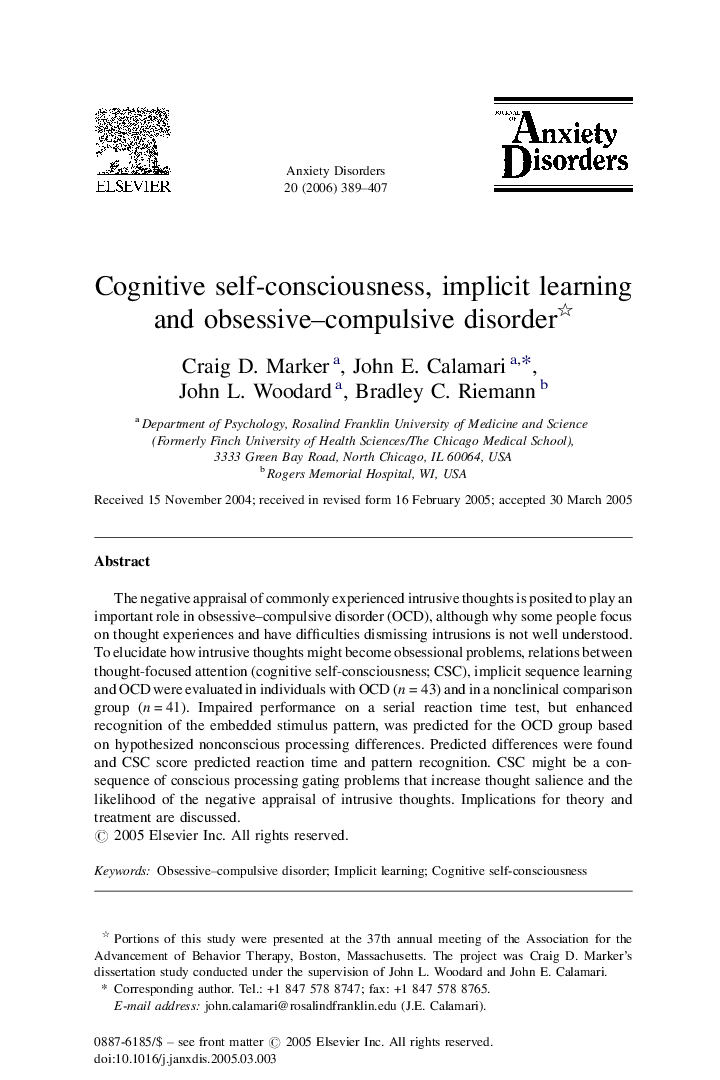| کد مقاله | کد نشریه | سال انتشار | مقاله انگلیسی | نسخه تمام متن |
|---|---|---|---|---|
| 910216 | 917341 | 2006 | 19 صفحه PDF | دانلود رایگان |

The negative appraisal of commonly experienced intrusive thoughts is posited to play an important role in obsessive–compulsive disorder (OCD), although why some people focus on thought experiences and have difficulties dismissing intrusions is not well understood. To elucidate how intrusive thoughts might become obsessional problems, relations between thought-focused attention (cognitive self-consciousness; CSC), implicit sequence learning and OCD were evaluated in individuals with OCD (n = 43) and in a nonclinical comparison group (n = 41). Impaired performance on a serial reaction time test, but enhanced recognition of the embedded stimulus pattern, was predicted for the OCD group based on hypothesized nonconscious processing differences. Predicted differences were found and CSC score predicted reaction time and pattern recognition. CSC might be a consequence of conscious processing gating problems that increase thought salience and the likelihood of the negative appraisal of intrusive thoughts. Implications for theory and treatment are discussed.
Journal: Journal of Anxiety Disorders - Volume 20, Issue 4, 2006, Pages 389–407